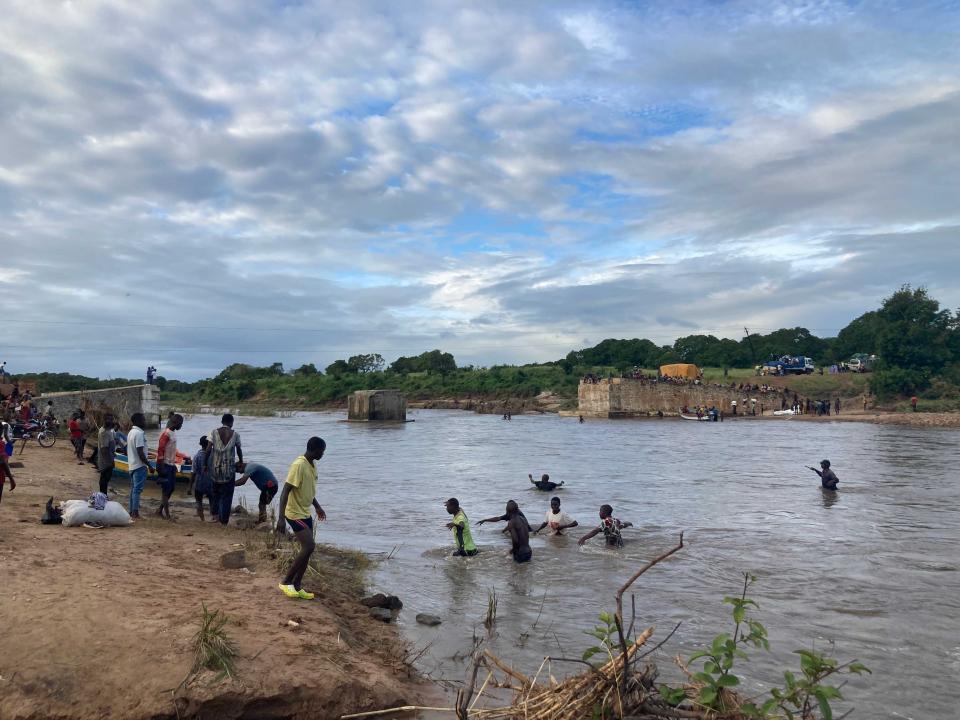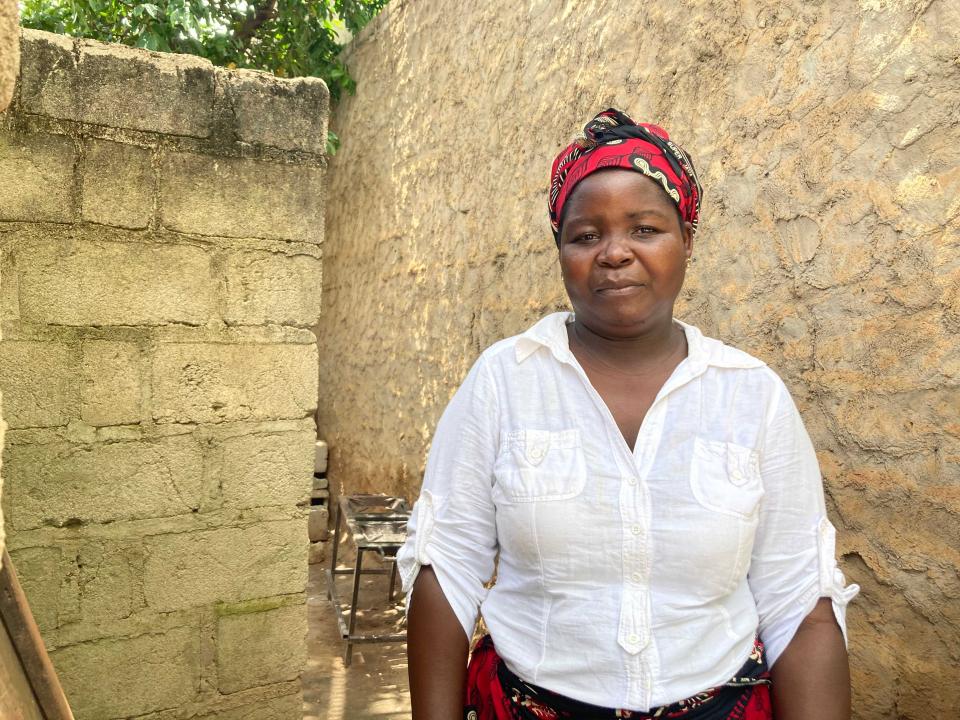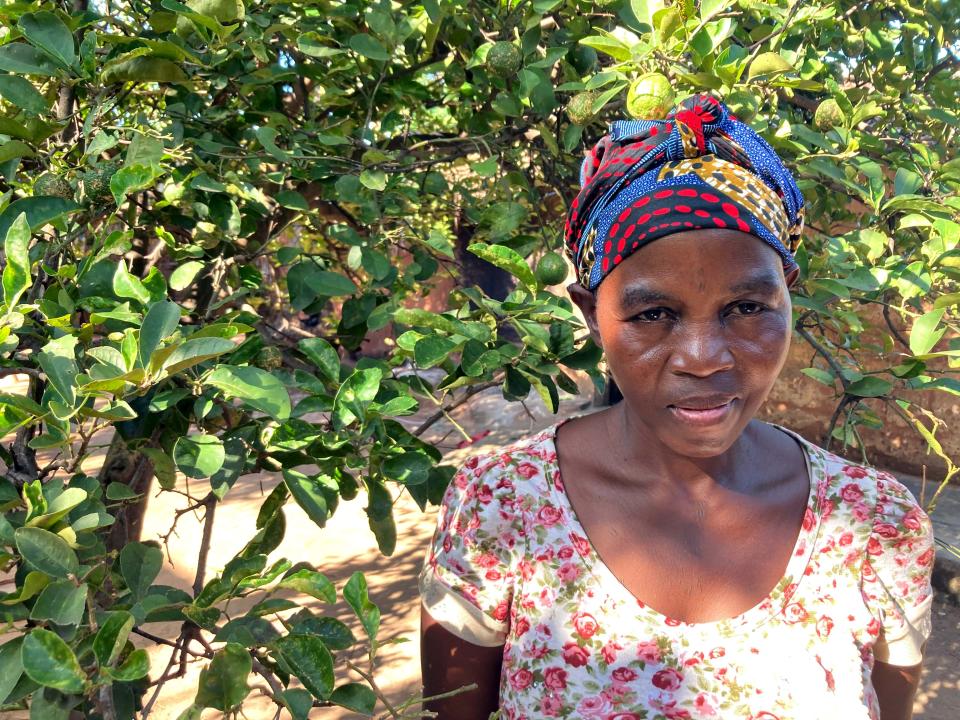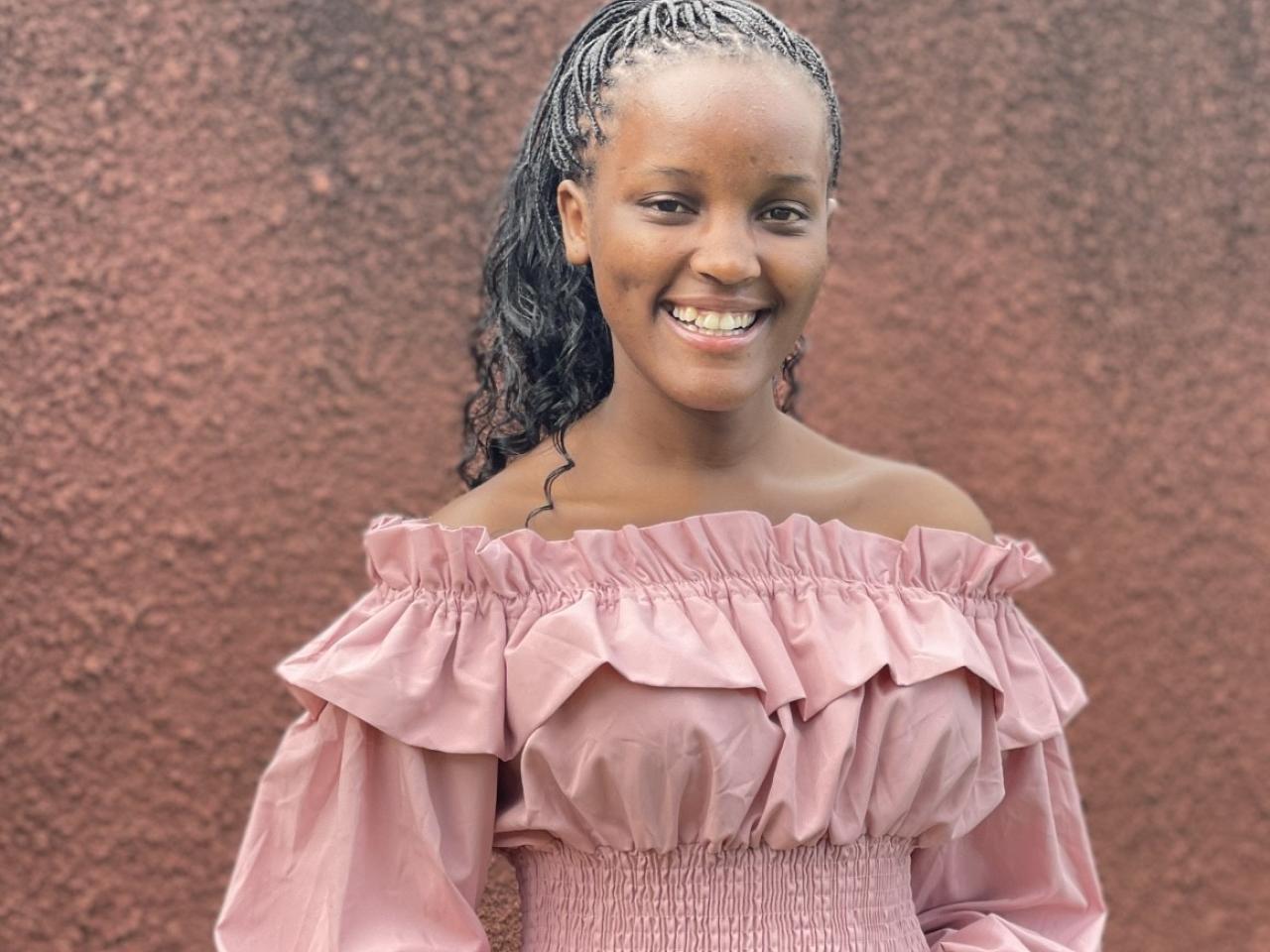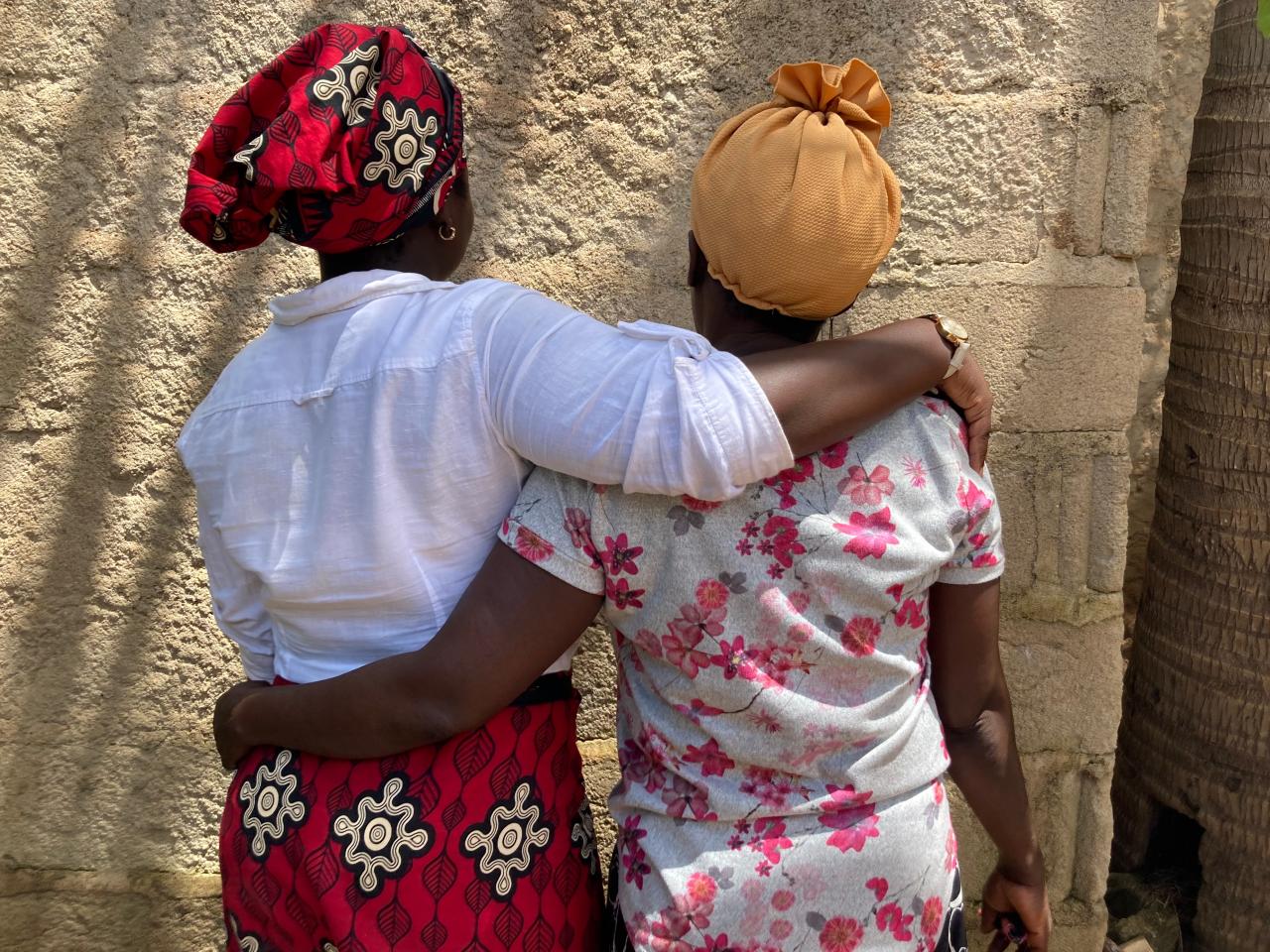"We are tired of starting over. We need some peace of mind" - how climate change affects women and girls in Mozambique
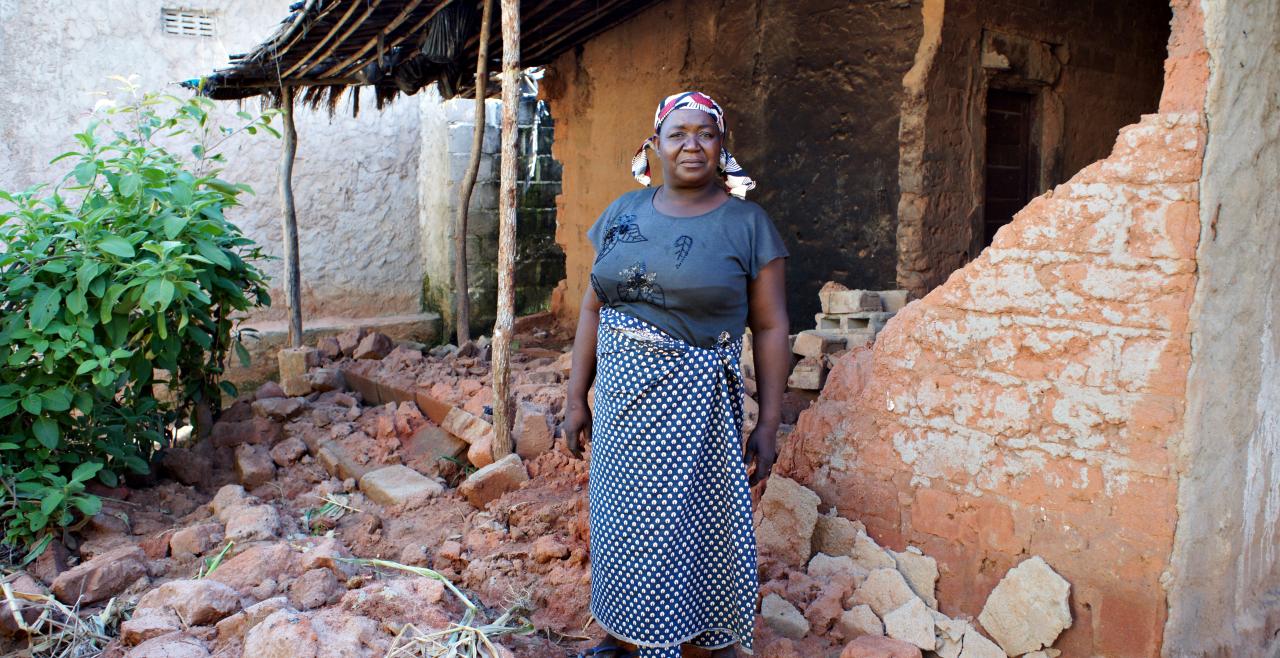
NAMPULA, Mozambique - When Cyclone Gombe hit the northern coast of Mozambique on the 11th of March, Nampula province was among the most heavily impacted regions. The cyclone caused widespread devastation, affecting more than 700,000 people. More than 60 people lost their lives (INGD). Since the beginning of the year, two large-scale natural disasters have hit the country, increasing vulnerability in the lives of those who often bear the brunt of disasters: women and girls.
In Nampula, Irlanda Ernesto, 32, a businesswoman selling agricultural products, was forced to temporarily close down her business due to flooding and impassable roads. Meanwhile, crops lay spoiling in fields.
“Before we used to hear of cyclones hitting every 10 years, but now how many do we expect in a year? We are tired of starting over." - Ms. Ernesto, a businesswoman affected by the cyclone
Among African countries, Mozambique is the third most prone to natural disasters (GAR 2019). In the last 42 years, 15 droughts, 20 floods and 26 tropical cyclones have been registered (INGD). Cyclone Gombe was the most recent to strike.
“We won't be able to live like this for much longer. We need to quickly do whatever it takes in relation to these cyclones,” warns Ms. Ernesto.
Nearly two-thirds of Mozambique’s workforce is linked to agriculture (AEA 2015), with the sector employing 90 per cent of national working-age women and girls (Fórum Mulher, 2019). Climate disasters have a direct impact on women and girls, making them more susceptible to food insecurity, poverty and gender-based violence, and increasing their dependency on male partners, family and landowners for their livelihoods.
“Before we used to hear of cyclones hitting every 10 years, but now how many do we expect in a year? We are tired of starting over. We need some peace of mind, we want to continue with our lives,” shares Ms. Ernesto.
Climate change increases existing gender inequalities, leaving many women and girls at risk of displacement and in crowded or insecure living arrangements. It also disrupts health, referral and protection services that women and girls rely on, and increases school dropouts, and gender-based violence rates. For an equitable, inclusive and sustainable recovery, it is essential to place women and girls in central positions in the debate and decision-making around climate change.
Since 2019, the Spotlight Initiative in Mozambique has promoted women’s economic empowerment, the diversification of income sources for women and girls, and access to information on Gender-Based Violence (GBV), particularly in contexts of natural disasters. These actions have been increasing women's resilience to tragic climate events.
However, Ms. Ernesto´s question remains unanswered: how long must women continue to start over?
Financial independence and savings boost recovery from climate events
Sónia Gonçalves, 20, and nine other young women opened a hair salon in Mogovolas district, Nampula province. They were able to do this with the support of Ophavela, a civil society organization and partner of the Spotlight Initiative, who conduct training in business management and savings strategies. Armed with these new skills, Sónia and the others were equipped to get their business off the ground.
"Our salon was the first in the neighbourhood to be run by women. Since we rotate among the group, we maintain our jobs, study and take care of our children. Everything was going well for us, but then the cyclone came and destroyed everything. It took everything away," says Sónia.
"It seems that there is always something holding us back. It's sad to have to do everything again." - Agira Fernando, a business partner of the hair salon destroyed by the cyclone
The few items that remain from the business now sit on the veranda of one of their parent's homes, where they work today.
"It is very sad. We had training and support, and everything was going well. We are going to have to work hard to recover from this. The savings we have will help, but everything we wanted to do is now delayed. I was saving money for my health degree but I cannot afford it now,” shares Sónia.
Targeted investment in education and job training for women and girls is a sustainable form of economic progress that reduces women's financial dependency and frees them from the risk of violence often associated with economic vulnerability. But this progress is jeopardized by climate change events, such as cyclones.
"One good thing about our group is that we can support each other. Today we don't accept violence in our lives because we don't depend on anyone anymore. But it seems that there is always something holding us back. Now it was the cyclone. I know it's a matter of time before we have the salon again, but it's sad to have to do everything again," shares Agira Fernando, 18, a salon business partner.
By 2021, with the support of the Spotlight Initiative, more than 9,000 women and girls were reached through economic empowerment programmes, many of whom, now affected by Cyclone Gombe, will have to invest their savings to get their businesses back on track.
Occupy new spaces in the labour market
Irlanda Ernesto, 32, started her business in 2020. She buys peanuts, cassava and corn from local women’s crops, and sells them in local markets in Piloto, a neighbourhood in Nampula City.
"Everything was destroyed. For those of us who depend on the land, this means that everything stops. Our lives have stopped." - Ms. Ernesto
"After the training and the initial investment for my business, my life was going well, it had taken off. Suddenly, I was stopped by (Cyclone) Gombe. Everything was destroyed, the fields were flooded or isolated, and the producers couldn't sell their products because we, the buyers, had no way to pass through the destroyed roads. For those of us who depend on the land, this means that everything stops. Our lives have stopped,” says Ms. Ernesto.
Ms. Ernesto is part of a women's group supported by Núcleo Todos Contra a Violência, one of the coordinating platforms for civil society organizations in Nampula and a partner of the Spotlight Initiative. She points out the importance of diversifying job opportunities for women given natural disasters continue to impact the lives of women who solely depend on agriculture as their main source of income.
"These disasters don't bring everyone the same problems. For example, men have jobs and occupations that are mostly not dependent on the land. So they will always have bread on the table at the end of the month. We, the women, are the ones who are still very much tied to the land. I see that the lives of the women in my group with other businesses were also affected, but not all of them had to stop, and that is good. Doing different things also helps us in these moments, when some go without, others can lend a hand," shares Ms. Ernesto.
Ms. Ernesto believes that her next business venture should be strategic instead of fear-based: "To have another business should be my decision and not a solution to solve my life problems when these cyclones come. Having other businesses is good, but the most important thing is to do something to stop these storms," Ms. Ernesto says.
Since 2019, the Spotlight Initiative has been training women in different vocational areas to provide women with choices based on employment opportunities and areas of interest, such as electronics, mechanics, metalworking, gastronomy or baking, or cutting and sewing. Access to different vocational areas for women and girls also contributes to changing harmful norms that typify professions by gender.
Information and knowledge as sustainable resources against GBV and climate change
"We want to know more about this climate change. Our women's group was very much affected by the cyclone. We can discuss and think of solutions if we know more about it," explains Estefânia Eduardo, 34, the Women's Group leader from the Piloto neighbourhood in Nampula City.
The Piloto Women's Group is one of more than a 100 women's organizations supported by the Spotlight Initiative that has received training in advocating for women's and girls' rights, and for preventing and eliminating gender-based violence. The group, initially formed with the support of the civil society organization Ophenta, meets weekly to discuss different topics, refer cases of GBV, and raise awareness among communities via health centres and through door-to-door campaigns.
Almost all of the 53 women in the group were affected by Cyclone Gombe. The rain and winds destroyed their houses and many of them were robbed on the very night of the cyclone, losing their food and goods. Joana Chirome was one of them.
"My neighbour's house broke and fell onto my house. I had to go with my five children inside another neighbour's house because mine was fragile. When I came back to my house, my food and clothes were gone. The house was empty. They took the oil that I use for my food business. I am a widow, I only rely on myself, and now I am left without a source of income," says Ms. Chirome.
During times of conflict or natural disasters, women are the first to lose their assets and jobs, and girls are at higher risk of dropping out of school (UNITE). Stories like Ms. Chirome's are told by many other women in the Piloto neighbourhood.
"We are not ignorant, we just need information. We need to know more about the climate and do something about it." - Ms. Eduardo, Women's Group leader from the Piloto neighbourhood
Action-orientated and with a sense of urgency to support the women in her community, Estefânia asks for support. "We have learnt many things about gender-based violence. We are not ignorant, we just need information. We need to know more about the climate and do something about it. It is affecting us too; it is also a type of violence for us," Ms. Eduardo concludes.
The Spotlight Initiative supported the "Linha Verde - 1458", a hotline funded and implemented by the United Nations World Food Programme, and supported by other UN agencies, which is used by crisis-affected communities. This vital hotline provides information from trained professionals and also helps refer survivors of gender-based violence to available services. Since the beginning of 2022, the Spotlight Initiative has been working with the International Union for Conservation of Nature (IUCN), and taking on climate change as a focal theme.
While these programmes have demonstrated substantial results, climate change is a neutralizer impacting the lives of women and girls. And as one of the most climate-prone countries on the continent, women and girls in Mozambique are no exception: they are in the midst of a climate emergency and are demanding immediate action.
The Spotlight Initiative is a global initiative of the United Nations which has received generous support from the European Union. Its aim is to eliminate all forms of violence against women and girls. In Mozambique, the Spotlight Initiative is led by the Ministry of Gender, Children and Social Action (MGCAS) in partnership with the United Nations and civil society organizations (CSOs).
By Lara Longle

